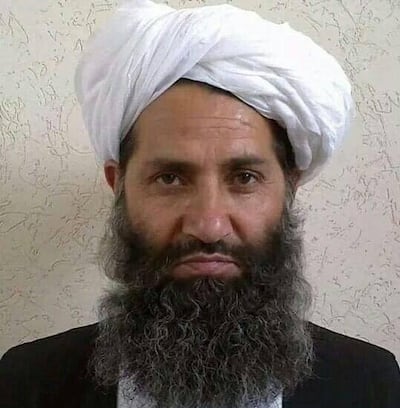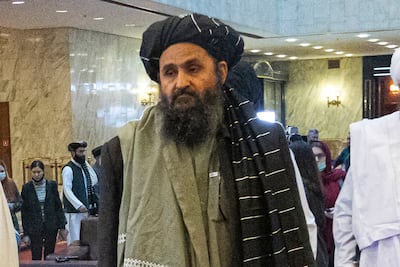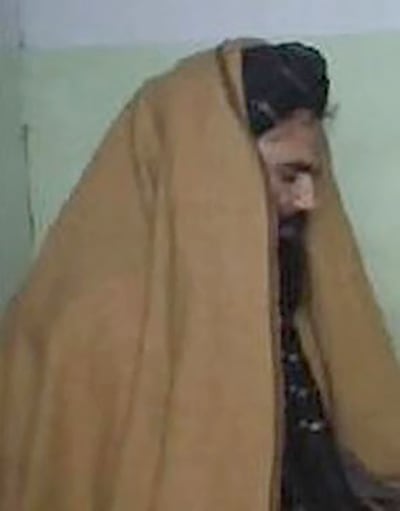Follow the latest updates on Afghanistan here
The Taliban, Afghanistan's insurgent group turned ruling movement, now faces the prospect of governing a country of 40 million people.
There are at least 14 ethnic groups among them, from Afghanistan's arid south to the snow-capped mountains of the north.
They rose to power, taking Kabul last week, as rapidly as they fell in 2001 after a US-led international invasion, which backed a coalition of northern Afghan groups.
In just 10 days they took control of major cities, walking into the capital city unopposed and leaving Ahraf Ghani, the internationally recognised president, to flee abroad.
Since then, the group has declared victory and Mr Ghani has conceded.
A number of people stood out during the group's rise and fall – and an unfamiliar figure stood in front of the cameras on Tuesday.
Here are the Taliban leaders you need to know:
Hibatullah Akhundzada

Hibatullah Akhundzada is the Taliban's supreme commander, but more of a figurehead than a key player. He is the third person to fill the role of spiritual leader, often issuing fatwas, or religious rulings, on a range of topics.
He came to power in 2016 after his predecessor, Akhtar Mansour, was killed in a US drone strike.
Born in Kandahar's Panjwayi district in 1961, his family moved to Pakistan during the Soviet invasion of 1979 before Mr Akhundzada fought against the Soviets in the early 1980s.
In 1996, upon the Taliban capture of Kabul during the Afghan civil war of the 1990s, which ushered in Taliban rule until 2001, Mr Akhundzada became a member of the group's Department of the Promotion of Virtue and the Prevention of Vice, which enforced the Taliban's interpretation of Sharia.
He rose through the ranks, becoming a spiritual advisor to Mohammed Omar, the group's leader and co-founder, and then served as the group's deputy leader in 2015.
Omar is remembered for refusing to hand over wanted terrorist Osama bin Laden in 2001 after the September 11 attacks, leading the US to rally an international alliance against the Taliban.
Mr Akhundzada survived two assassination attempts – one in 2012 and another in 2019 by Afghan forces.
Abdul Ghani Baradar

Taliban co-founder Abdul Ghani Baradar is expected to lead the country after the events of August 15 that led to Kabul's capture.
Mr Baradar was released eight years after his 2010 detention by Pakistani forces to lead intra-Afghan political discussions with the government. US envoy for peace in Afghanistan, Zalmay Khalilzad, said Mr Baradar was freed at the request of the US.
A year later, Mr Baradar was heading talks with the US in Doha aimed at paving the way for peace in the country.
Mr Baradar and Mr Khalilzad were co-signatories to the US-Taliban agreement of 2020.
Born in 1968, as a teenager Mr Baradar met Omar, becoming his deputy as the mujahideen fought against the Soviets in the 1980s before founding the group today known as the Taliban in 1994.
Omar gave Abdul Ghani the baradar pseudonym, which means brother, in a show of endearment.
Mohammad Yaqoob
Son of Taliban co-founder Mohammed Omar, Mohammad Yaqoob became the second deputy leader of the group under Mr Akhundzada's leadership.
He largely controlled the Taliban's military wing and in 2020 was made military chief.
At 31, Mr Yaqoob is relatively young, but took over the group when Mr Akhundzada was found to have Covid-19, a senior commander told Foreign Policy.
Sirajuddin Haqqani

Son of Jalaluddin Haqqani, leader of the Haqqani terrorist group, Sirajuddin is one of the group's highest-ranking members.
The Haqqani network is behind some of the deadliest attacks in Afghanistan in recent history and remains a menacing power in the region, competing with the country's ISIS affiliate.
Sirajuddin, who is believed to be in his 40s, is wanted by the US government.
The Haqqani group is responsible for the Taliban's finances and military assets on the border with Afghanistan.
Little else is known about Sirajuddin.
Abdul Hakim Mujahid
Abdul Hakim Mujahid was appointed head negotiator for the Taliban's delegation in Doha. He ran an Islamic religious school – known as a madrassa – in Pakistan and played a senior role in the Taliban's judicial department.
He is another who is close to Mr Akundzada and is an influential figure in the Taliban's religious circle.
You can follow the latest from Afghanistan on our live blog.
